How Milwaukee’s mayoral candidates would shape the city’s schools
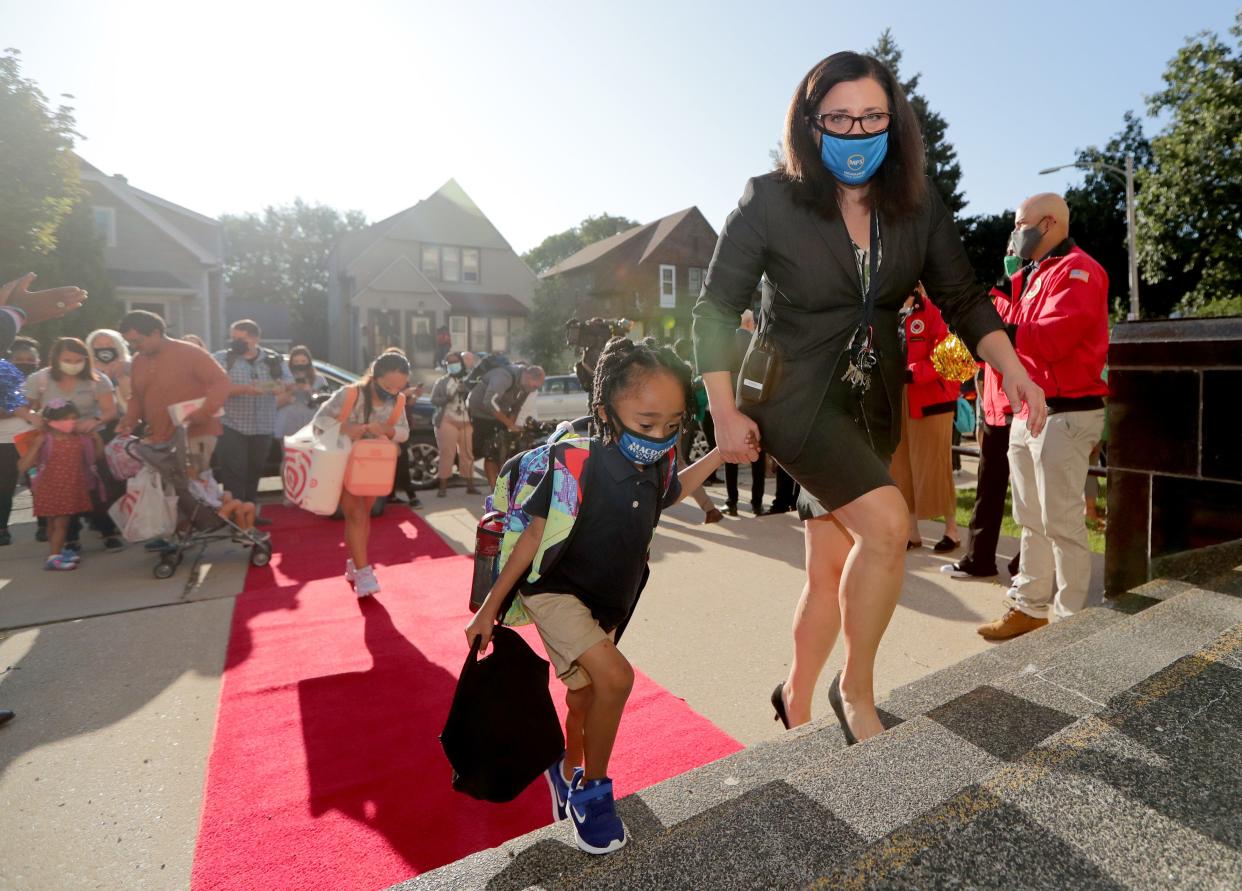
- Oops!Something went wrong.Please try again later.
Milwaukee’s mayor has historically had little control over the city’s schools. That could soon change.
Under a proposal to dismantle Milwaukee Public Schools, backed by Republican candidates for governor, the new mayor would play a major role in overhauling the district — whether they want to or not.
More: Alan Borsuk: Changing the trajectory of MPS has appeal, but breaking it up may create more problems
Ahead of the primary election Feb. 15 and general election April 5, the seven mayoral candidates have shared widely different designs for shaping public and private schools in the city.
They’ve also proposed a range of new programs for Milwaukee’s youngest residents, including a universal prekindergarten pilot program, more affordable driver’s education and urban agriculture partnerships.
Results of a Milwaukee Journal Sentinel survey suggest residents expect the new mayor to take a strong stance on education issues, rating education in their top three issues along with reckless driving and crime.
Former Mayor Tom Barrett stretched some powers of the role, while staying quieter on other points.
In 2009, Barrett supported stripping the Milwaukee School Board’s power to appoint the superintendent and set the district’s budget. Barrett and Gov. Jim Doyle suggested Barrett should appoint the superintendent, who would set the budget. Lawmakers refused to support the measure and it generated fierce opposition in the city.
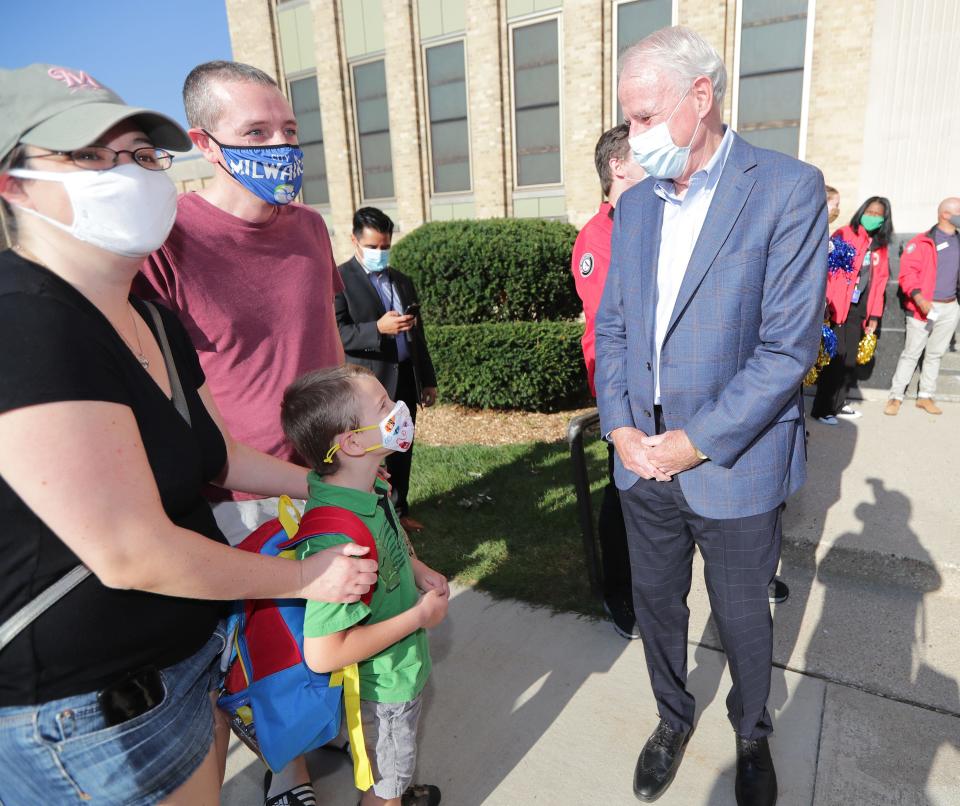
Barrett has also attempted to tip funding scales toward public schools. He pushed for years before state lawmakers agreed to reduce the tax burden on city residents for tuition vouchers for students to attend private K-12 schools. And when the private St. Marcus Lutheran School wanted to buy an empty MPS building, Barrett proposed it pay the city an extra $1.3 million to cover the cost of the tax-funded vouchers the school would receive over the decade.
Milwaukee School Board President Bob Peterson said he would have liked to see more from the mayor — more advocacy at the state level and more collaboration in certain areas like public health and environmental initiatives.
“I wish he would have been more forceful in his support,” Peterson said of Barrett. “We need the support of the mayor, because regardless of the varieties of schools that exist in the city, the public schools are the ones that are the mainstay.”
In interviews with the Journal Sentinel, each of the seven candidates vying to replace Barrett shared their plans for shaping the city's schools of all types. Tuesday's primary vote will narrow the field of seven candidates to two and the winner on April 5 will complete the final two years of Barrett's term.
Acting Mayor Cavalier Johnson
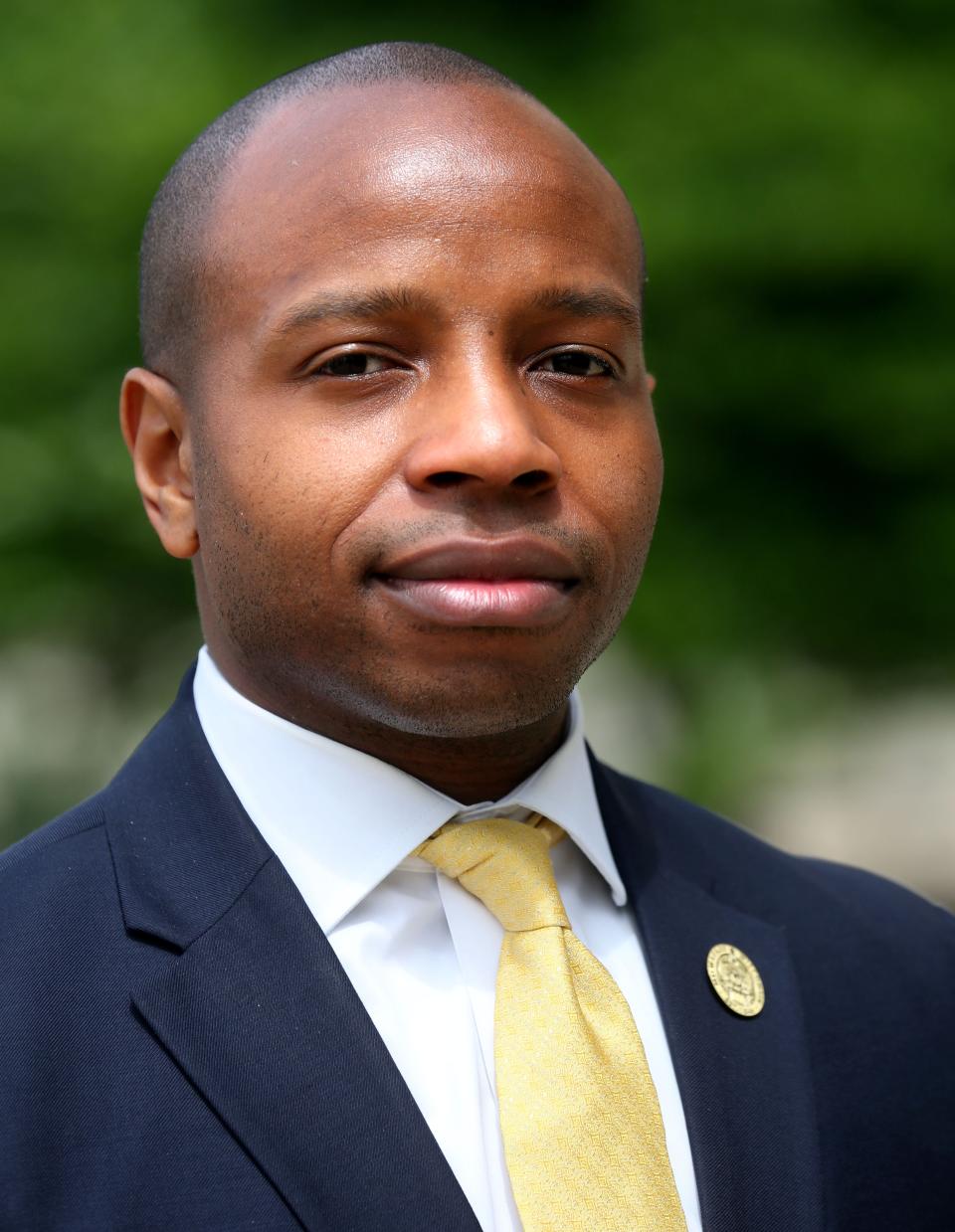
Cavalier "Chevy" Johnson is serving as the city's acting mayor until the election, while also serving as Common Council president representing the second district on the northwest side, as he campaigns for the job beyond April 5.
Johnson has come out strongly against the proposal to break up MPS, though he hasn't said he would resist participation in the process. He decried lawmakers for not consulting with him and Milwaukee education leaders in drafting the proposal, which he said would not address the biggest hurdles facing the district.
"It fails to acknowledge the systemic inequities in our city that stem from poverty, crime and the hollowing out of employment in urban centers," he said.
Johnson, a 2005 graduate of Bay View High School and first in his family to graduate from college, has a son in MPS and will soon have two daughters in the district's public schools.
Johnson stressed the importance of building up MPS, arguing that MPS should be the city's sole authorizer of charter schools — schools that are allowed more curriculum flexibility but must have public oversight.
In Milwaukee, some charter schools are run by MPS while most are run independently with authorization and oversight from either MPS, the University of Wisconsin-Milwaukee or the Milwaukee Common Council. When schools are authorized by MPS, the district can pocket administrative fees and districtwide funding.
Johnson said he'd like to see more MPS-authorized charter schools filling up underutilized MPS buildings and would like to avoid selling vacant MPS buildings, which the city owns, to other charter or private schools.
Johnson also said he would be a vocal advocate at the state level for additional state funding for MPS and other school districts, supporting calls for the state to fund two-thirds of education costs.
Johnson also said it's important for the city to expand work under the Office of Early Childhood Initiatives he helped push to create, and called for the school district to offer more driver's education opportunities.
As the pandemic continues, Johnson said he wants to improve communication and partnerships with schools, pointing to the city's mask distribution and school-based vaccine clinics as successful examples. Johnson also signed a citywide mask mandate through March 1 after calls from the Milwaukee School Board to do so.
Johnson pointed out he was endorsed by one School Board member, Sequanna Taylor, as well as retired United Community Center Executive Director Ricardo Diaz.
Former Ald. Bob Donovan

Former Ald. Bob Donovan was the only candidate not to fully reject the proposal to break up MPS, saying he would welcome the opportunity to learn more about it and would want to also hear the perspective of MPS School Board members and the superintendent.
More generally, he said, he would be open to hearing other proposals to give the mayor more power over MPS. He said he would also appoint an education advisory committee to inform his decisions on education.
“I’m not opposed to exploring every option," he said.
Donovan initially supported the 2009 plan to give the mayor the power to choose the MPS superintendent, saying he had pushed for more mayoral control of MPS for years, though he raised concerns about mayoral control over the district's budget.
Asked whether he would advocate for Milwaukee schools on the state level, Donovan focused on curriculum. He said while students should learn about the "warts" in the country's history, they should “appreciate the fact that they live in the greatest country on the face of the earth, and I think it’s important to instill that.”
On COVID-19, Donovan disagreed with the School Board's calls for a citywide mask mandate. He also said he didn't think MPS schools should require masks — a decision that has rested with the School Board.
Donovan attended Catholic schools in Milwaukee, graduating from Thomas More High School. His children have attended a mix of Catholic and public schools in the city.
Michael Sampson, business owner
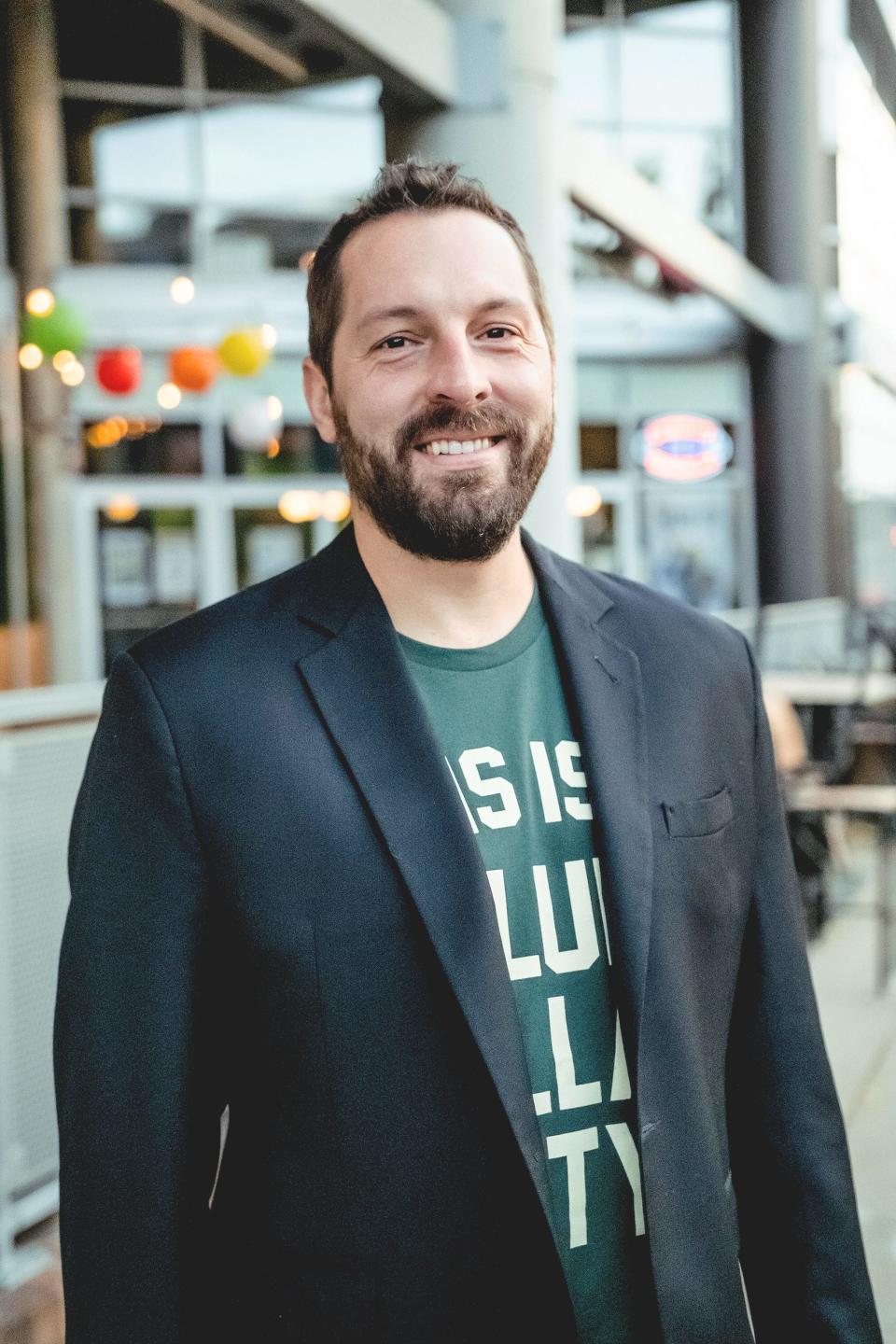
Michael Sampson, owner of Swarmm Events, said he opposed the current proposal to break up MPS but would push an idea to combine MPS schools with North Shore suburban schools in new merged districts.
"I think that is a better plan to help provide Montessori schools, language immersion and other schools to the North Shore and also create more school options for our students," he said. "I am for that plan and would push for that as mayor."
Sampson also said he'd like Milwaukee schools to teach more financial education, consider a four-day school week with longer days and offer more options to learn trade skills.
Sampson also said there should be more awareness about the range of school options. He said the city should embrace competition and shouldn’t resist selling vacant MPS buildings, owned by the city, to private schools.
“The voucher program, choice schools, charter schools, the more options for kids the better,” he said. “I’m all for selling off school properties, making money and creating a better competition in the city of Milwaukee for education.”
Regarding reckless driving, Sampson called for harsher penalties for minors stealing cars. He also called for implementing Milwaukee’s “Blueprint for Peace,” which identifies mass incarceration as one of the most pervasive forms of violence in Milwaukee and calls for more therapeutic resources for youth in the justice system.
A graduate of Palmyra-Eagle High School in Jefferson County, Sampson said he’d like his own future children to attend MPS.
“I would love to stay in Milwaukee and keep them in the MPS system, so we all got some years to help improving and making them better,” he said. “You can’t keep losing kids and families to the suburbs. We gotta bring the fight here and be better.”
Milwaukee County Sheriff Earnell Lucas
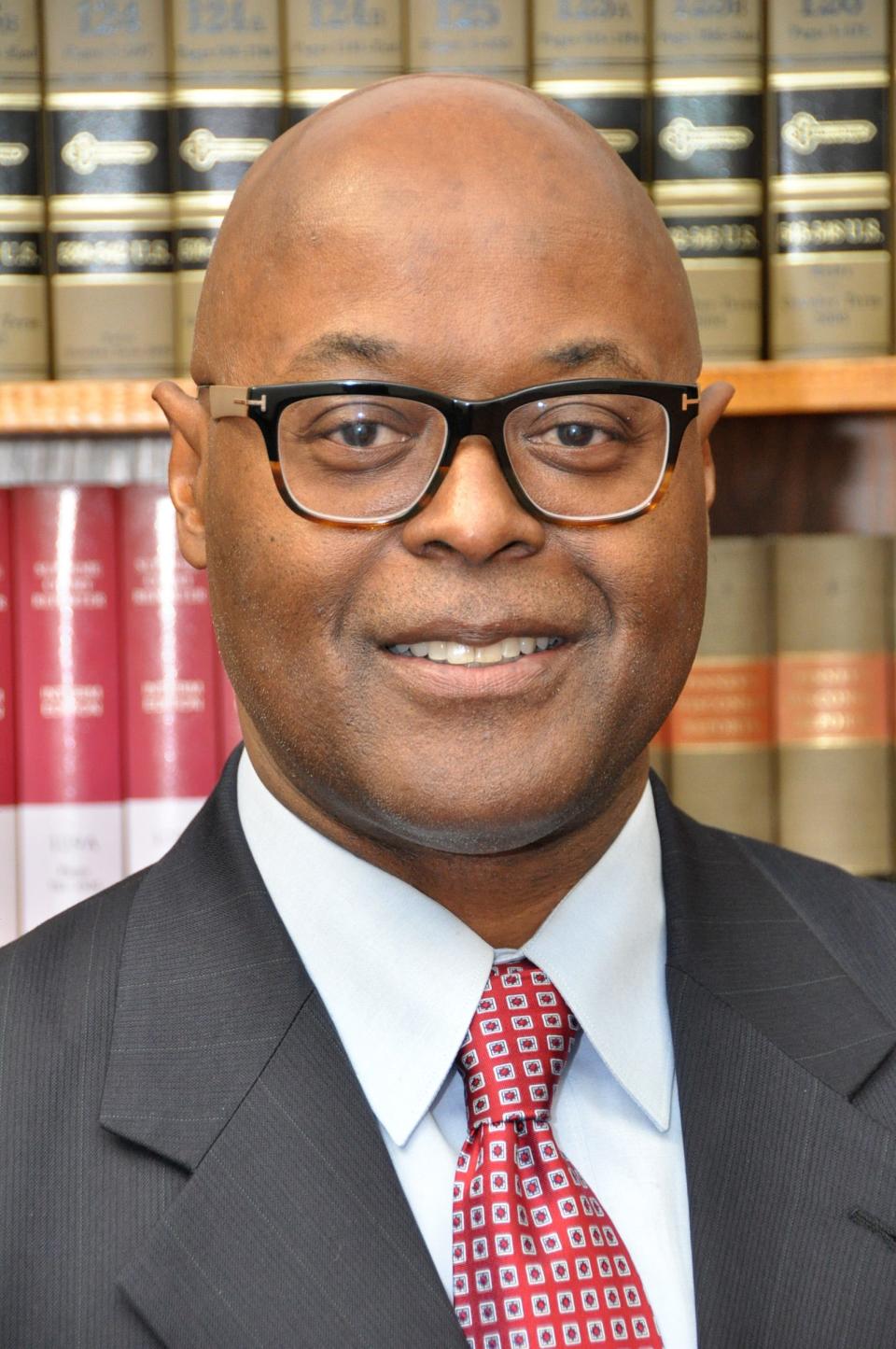
Milwaukee County Sheriff Earnell Lucas has not shared his views on the proposal to dissolve MPS. When asked more generally whether the mayor should have more control over MPS, such as appointing the superintendent, Lucas said he wouldn't oppose it.
“While I certainly will not seek to have the responsibility for education here in the city handed to the mayor, I would embrace that opportunity because I think if we do not solve our education problems then we will continue to see our children incarcerated at an alarming rate," he said.
Lucas is a graduate of MPS' Rufus King High School. His adult children attended school through the Chapter 220 school integration program.
As mayor, Lucas said he would push for a single place where parents can sign their children up for any school in the city. Currently, there are separate application and enrollment processes for different types of schools.
Lucas also said he would consider adding a position to the mayor's cabinet to focus on education.
Despite calls from the Milwaukee School Board to implement a citywide mask mandate, Lucas said he wasn't sure the mandate was the best policy, saying it was confusing and unfair to city businesses.
Ald. Marina Dimitrijevic

Marina Dimitrijevic, a Common Council member on the southeast side, makes education a top talking point of her campaign. But she doesn't want to take any control from the present School Board — and said she would refuse to appoint anyone to the proposed commission to dissolve and restructure the district.
"When I'm elected mayor I'll do everything in my power to keep this proposal from going forward," she said.
Dimitrijevic said she'd also like to see a legislative change to strip the city of its authority to authorize charter schools, arguing that power should lie with the School Board.
She is endorsed by five of nine Milwaukee School Board members: Marcela Garcia, Marva Herndon, Henry Leonard, Megan O’Halloran and Erika Siemsen. Three board members haven't made an endorsement.
Dimitrijevic has proposed launching a pilot program to lead to universal prekindergarten options for all 3- and 4-year-olds in Milwaukee, starting with ZIP codes with the highest need. Her own children are in MPS Montessori programs that start at age 3.
"Clearly that’s not universal and I wish it was," she said. Dimitrijevic said she's inspired by the model in New York City, where the publicly funded "Pre-K For All" initiative expanded 4-K and then 3-K citywide using federal stimulus funds.
To fund the initiative, Dimitrijevic said the city could draw upon federal stimulus funds and sales taxes, as well as taxes on marijuana, which she has worked to legalize.
Dimitrijevic also wants to see expanded before- and after-school programs and free driver's education courses for every Milwaukee student, in part to address reckless driving. And she is willing to use city funds to make it happen.
“It cannot all just lie on the school district," she said. "We’re asking teachers to perform miracles when a large number of children and families live in poverty and don’t feel safe in their neighborhoods; that means the city has to step up.”
State Sen. Lena Taylor
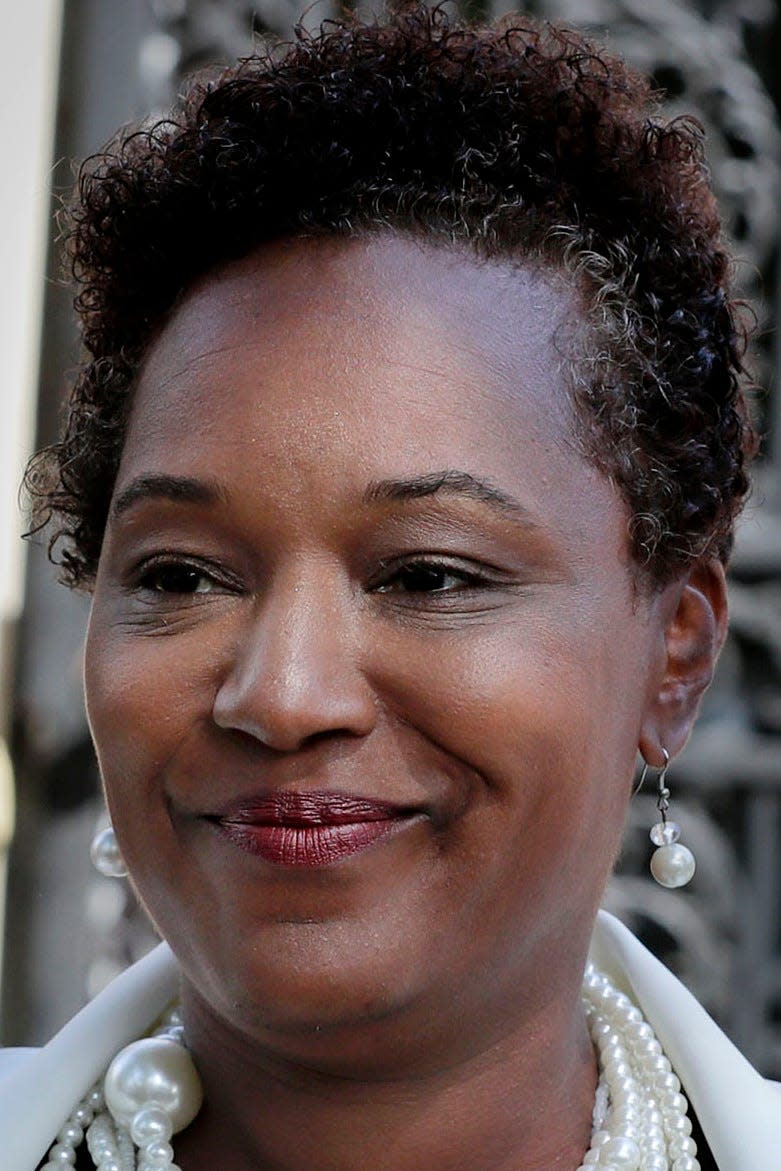
State Sen. Lena Taylor, a Rufus King graduate, said she would fight against the proposal to dissolve MPS, at least in its current form.
Taylor previously supported a proposal to take some power from the School Board — a 2009 plan that would have given the mayor the power to appoint the superintendent. She said she didn’t want to answer a question about whether she would support such a proposal in the future, saying she would have to see the details.
“I want the city to play a stronger support role for our school district,” she said. “I don’t want to control anything because I got a city to deal with, but I do want a partner in all of the education systems.”
Taylor said she already meets with the MPS superintendent monthly and would continue to as mayor. While she didn't want to commit city budget dollars to school district needs, she said she would work to facilitate partnerships between city departments, schools of all types, community organizations and companies — particularly for workforce development and urban agriculture.
Taylor gave the example of her work to connect Shorewood schools with Signature Sweets Bakery in a partnership to hydroponically grow produce for the bakery's muffins. Taylor also suggested vacant properties in the city could be used for students to learn trade skills like painting, electrical work and lead lateral replacement.
Taylor also said young people need more affordable and available opportunities for driver's education. And she suggested building partnerships with classic car clubs, the Milwaukee Mile Speedway, NASCAR and mechanics to help young people follow their interests in cars and speed in safer ways.
“We cannot depend on Grand Theft Auto to be the entity that teaches our young people how to drive," she said. “I want to redirect the energy in a way that allows them to see a positive way to go.”
Taylor also said the health department should hire more community health workers, particularly Black men, who could help with COVID and vaccination education in schools and beyond. She said city officials should help MPS improve its buildings, specifically with lead removal and air conditioning.
"The fact that the heat index is the way that it is and air conditioning is not in the buildings create at times some conditions that are just completely unacceptable,” she said. “There’s no question that some schools are dealing with buildings that are so old and those are falling on the school district alone."
Ieshuh Griffin, community activist
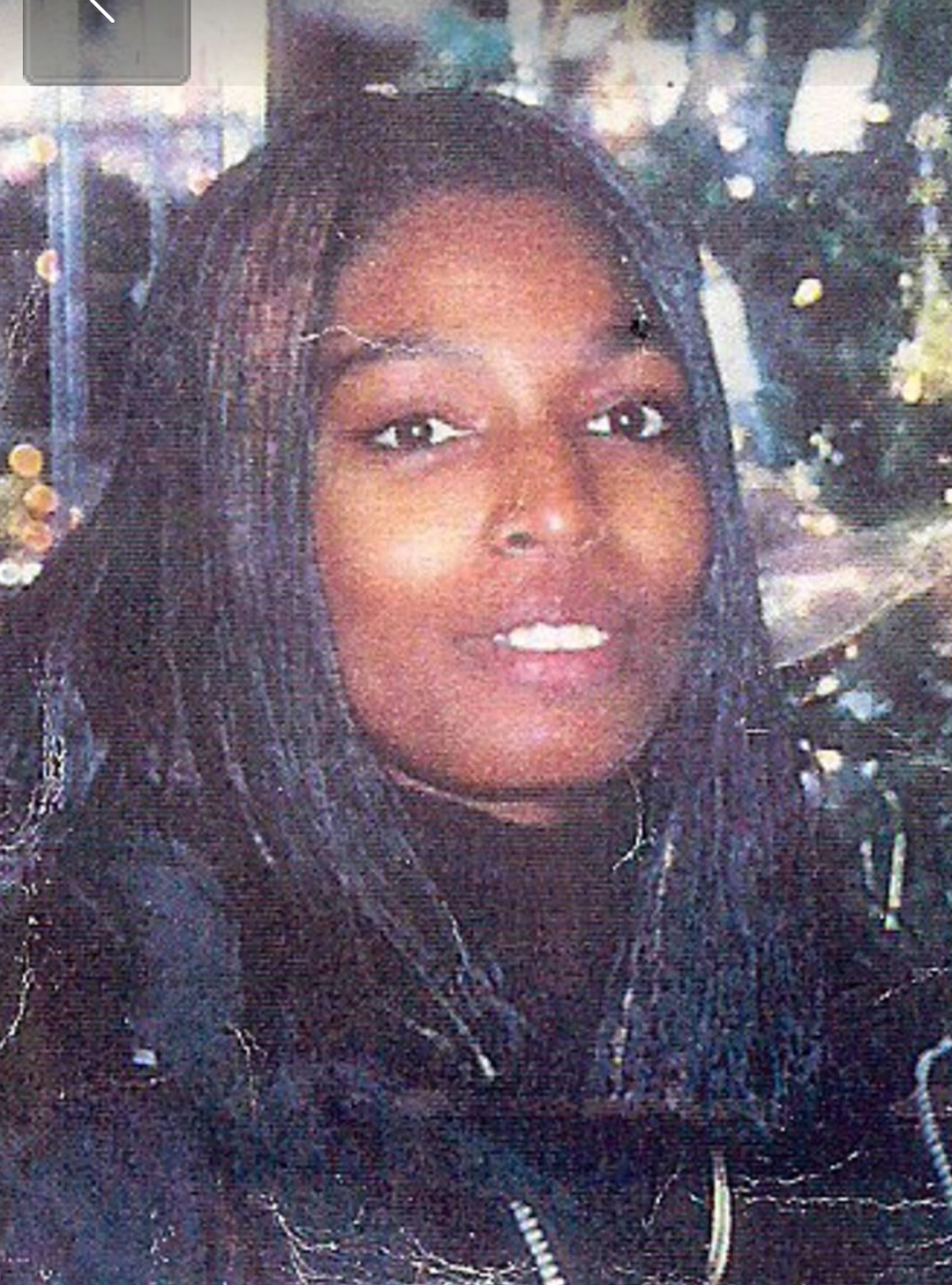
Ieshuh Griffin, an activist who is running under the slogan "The Poor People's Piece of the Pie Campaign," was clear on her vision: the mayor should control MPS.
Griffin said she opposed the proposal to dissolve MPS, saying instead the district should remain intact under the control of the mayor. She said she would support a model like the 2009 proposal to give the mayor the power to appoint the MPS superintendent and set the tax levy for the district.
“If you look at MPS, it’s not about the money. They’re overfunded. They have a lot of challenges where they just continuously fail the children," Griffin said. "A mayor-led school district saves resources and there could be a lot of diversity that’s lacking."
Similarly, Griffin opposes the state's "Opportunity Schools" program that charges the county executive with appointing a commissioner to oversee up to five MPS schools in the case that MPS gets a failing score on its state report card.
"It really should be in the hands of the city, not the county," Griffin said. "I just think an MPS takeover is a better fit for the mayor."
Griffin said she supports the Milwaukee Parental Choice Program that provides public funding to private schools and said she would support the sale of unused public school buildings to those private schools.
Griffin attended MPS schools before transferring to a private school, Learning Enterprise. Her children were homeschooled and attended private schools in the choice program.
Griffin, who said she is not vaccinated, said she would not support mask requirements and said vaccine clinics in schools were "overstepping."
Asked if she thought the city needed more child care and preschool options, she said the city already has enough but the quality needs improvement.
Contact Rory Linnane at rory.linnane@jrn.com. Follow her on Twitter at @RoryLinnane.
Our subscribers make this reporting possible. Please consider supporting local journalism by subscribing to the Journal Sentinel at jsonline.com/deal.
DOWNLOAD THE APP: Get the latest news, sports and more
This article originally appeared on Milwaukee Journal Sentinel: How Milwaukee’s mayoral candidates would shape the city’s schools

